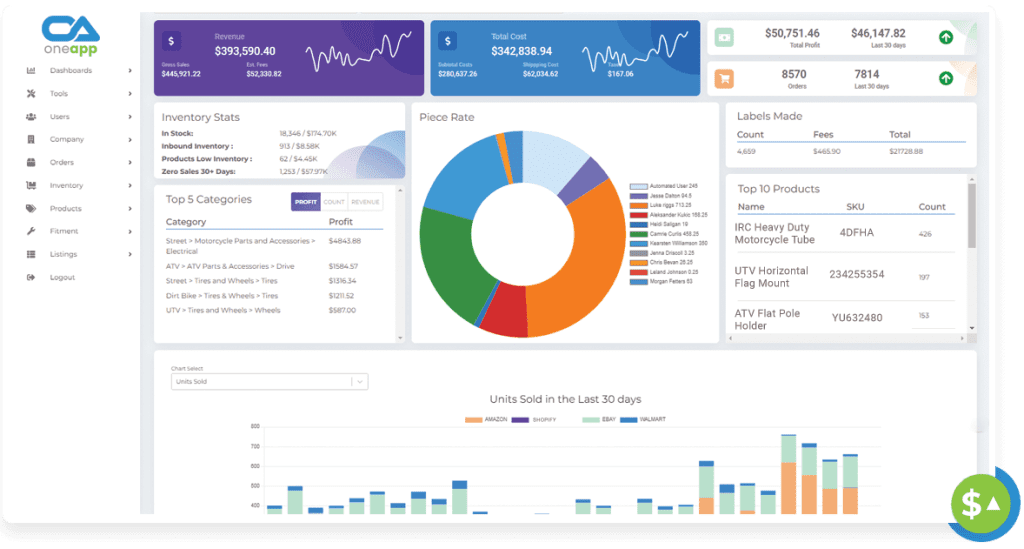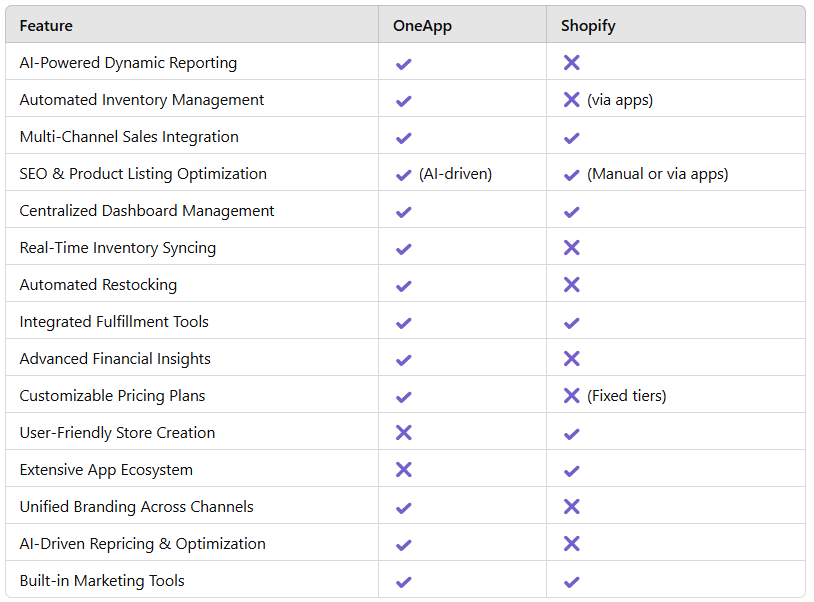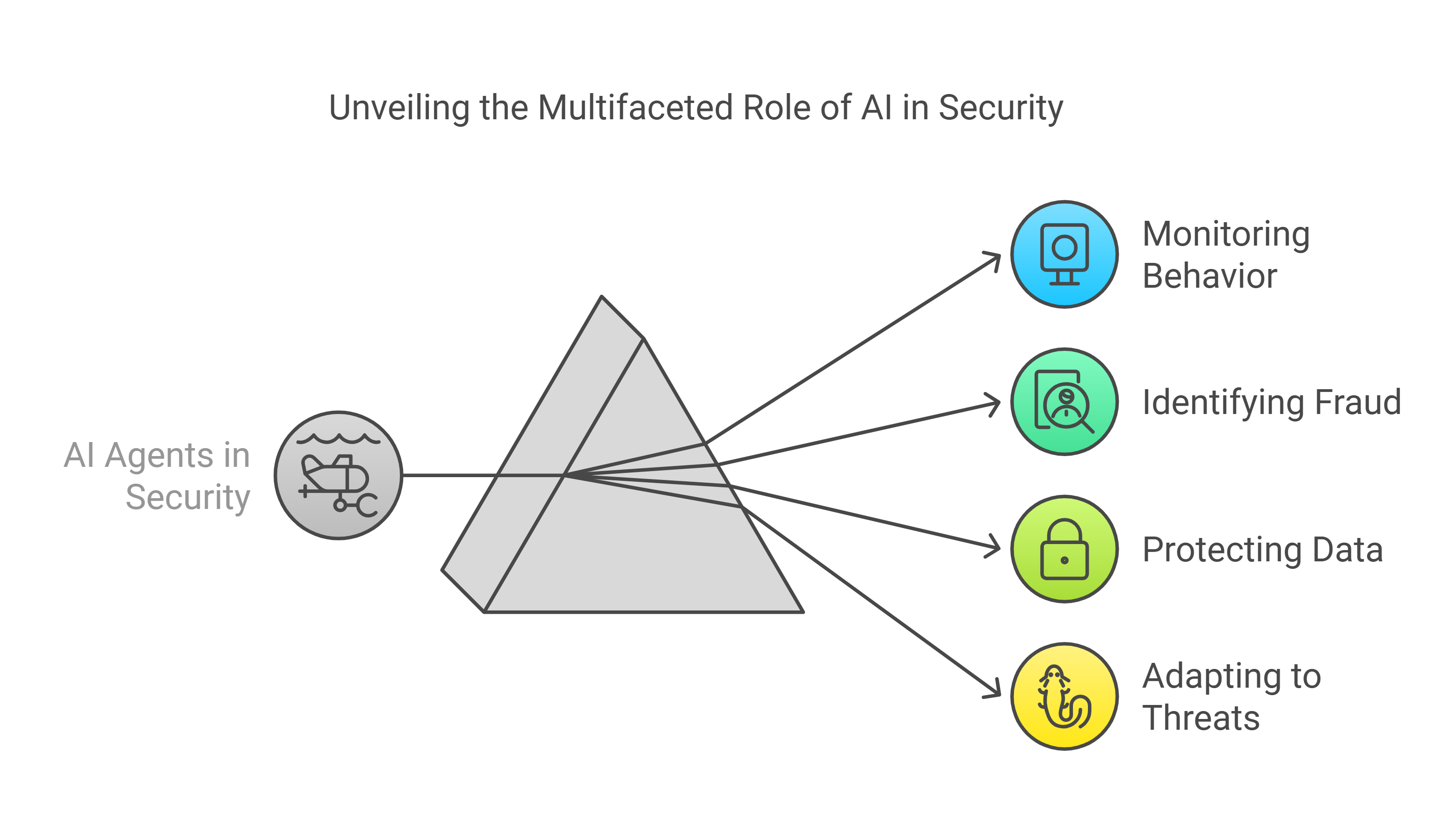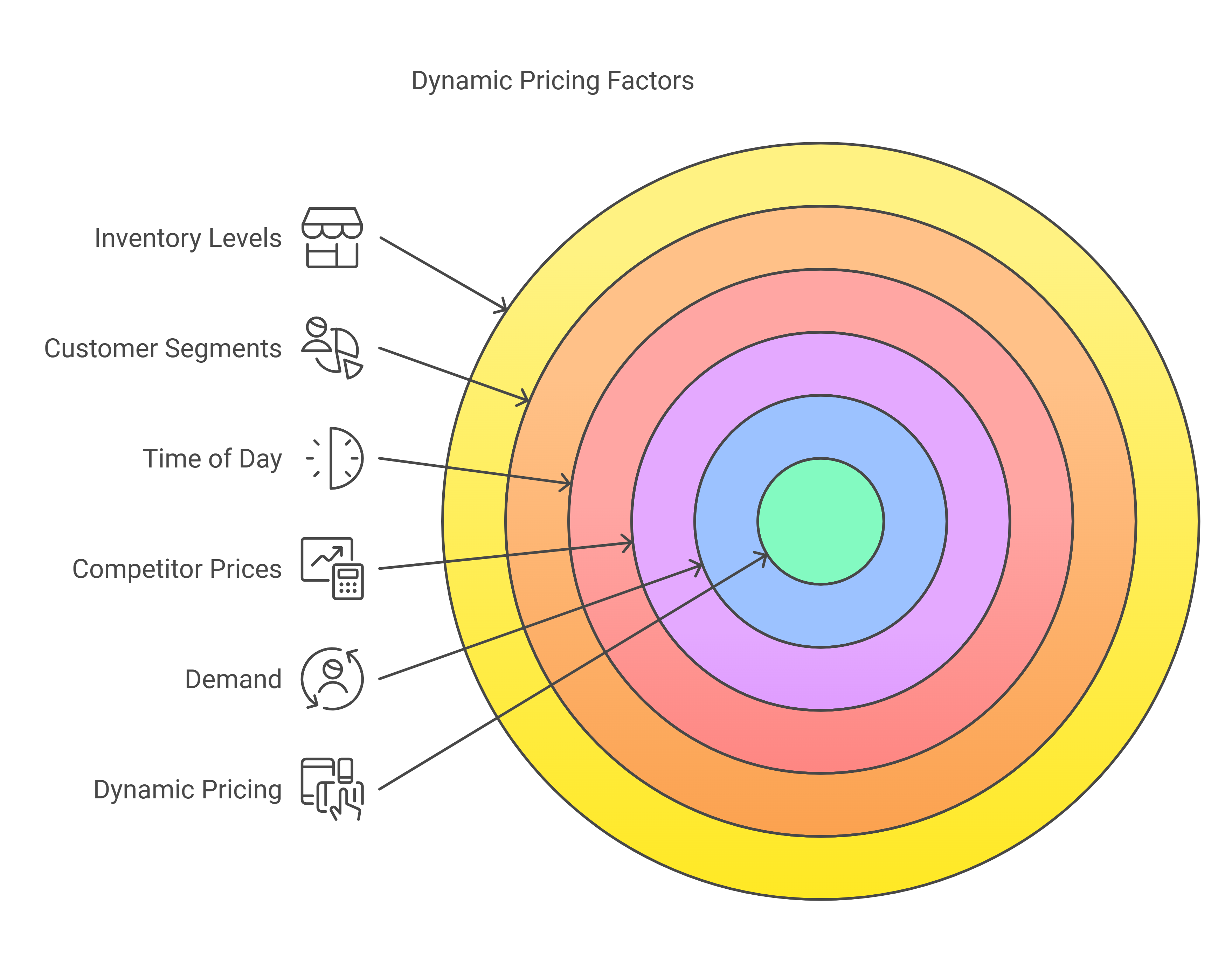
Struggling to stand out in the ever-growing world of online retail? You’re not alone. Many businesses feel the pressure to deliver faster, smarter, and more personalized shopping experiences to keep up with customer expectations.
Good news: AI is here to help. These AI-driven ecommerce strategies are already helping brands personalize shopping, improve customer service, and boost sales — and they can do the same for you.
In this guide, you’ll discover how AI tools can transform your online store with powerful features like tailored product recommendations, 24/7 customer support, and smarter inventory management. By the end, you’ll have actionable insights to make your ecommerce business run smoother and grow faster.
Key Takeaways
- AI personalizes your online shopping experience to match your preferences.
- Smart programs help stores run more efficiently by managing tasks like pricing.
- AI tools improve customer service with faster and friendlier assistance.
- Intelligent programs track stock and optimize inventory for better store management.
- Chatbots provide quick answers to questions and handle customer support effectively.
- AI helps shoppers discover products they’ll love through tailored recommendations.
Understanding AI in Ecommerce

AI is changing how online stores work. It helps businesses sell more and makes shopping easier for you.
Definition and Scope
AI in ecommerce uses smart computer programs to improve online shopping. These programs can learn from data and make choices on their own. They help with many parts of selling things online.
AI can do things like:
- Suggest products you might like
- Answer your questions quickly
- Spot fraud to keep your money safe
- Guess what will sell well
The scope of AI in ecommerce is wide. It touches everything from how you find products to how they get to your door.
Historical Development
AI in online shopping has come a long way. It started simple but got smarter fast.
In the early days, AI just sorted products. Now it can predict what you’ll buy next. This helps stores show you things you’re more likely to want.
Big changes happened when AI got better at understanding language. This led to chatbots that can talk to you like a real person.
As AI improved, it started to help with more complex tasks. It began to manage inventory and set prices. Now, AI can even create personalized ads for each shopper.
Enhancing Customer Experience with AI

AI transforms online shopping by personalizing experiences, providing instant support, and improving product discovery. These innovations make buying easier and more enjoyable for customers.
Personalization in Shopping
AI tailors your shopping experience to your unique preferences. It analyzes your browsing history, purchases, and interactions to suggest products you’re likely to love. AI-powered recommendation engines create personalized product lists, increasing the chances you’ll find what you need.
Some online stores use AI to customize their homepage for each visitor. You’ll see different featured items based on your interests. This makes shopping quicker and more relevant to you.
AI also helps with dynamic pricing. Prices may adjust based on demand, time of day, or your shopping habits. This can lead to better deals for you and improved sales for the store.
Customer Support and Chatbots
AI-powered chatbots are changing how you get help while shopping online. These chatbots use natural language processing to understand and respond to your questions. They’re available 24/7, providing instant support whenever you need it.
Chatbots can help with:
- Product information
- Order tracking
- Returns and exchanges
- Basic troubleshooting
For complex issues, AI can quickly connect you to a human agent. It even provides the agent with your chat history, ensuring a smooth handoff.
Some advanced chatbots use sentiment analysis to detect your mood. If you’re frustrated, they can adjust their tone or escalate the issue to better assist you

Search and Discovery Optimization
AI makes finding products easier and more intuitive. Smart search engines understand context and intent, not just keywords. This means you get more accurate results, even if your search terms aren’t exact.
Visual search is an exciting AI feature. You can upload an image, and the AI will find similar products. This is great for fashion and home decor shopping.
Voice commerce is growing too. AI powers voice assistants that let you shop hands-free. You can ask for products, compare prices, and even make purchases using just your voice.
AI also improves product categorization and tagging. This creates a logical store layout, making it easier for you to browse and discover new items you might like.
Operational Excellence through AI Using Tool Like OneApp

AI tools like OneApp are changing how online stores work. These tools make things run smoother and faster. They help with products, sales, and keeping customers safe.
Optimizing Inventory and Supply Chain Management with AI
OneApp leverages cutting-edge AI technology to revolutionize inventory management and streamline supply chain operations. By analyzing historical sales data and market trends, OneApp predicts future demand with precision, enabling you to maintain optimal stock levels.
This ensures you’re always prepared, reducing the risk of stockouts or overstocking.
The AI also proactively identifies potential supply chain disruptions, offering actionable solutions to mitigate issues before they escalate. With customizable alerts for low stock levels or shipping delays, you can respond quickly and keep your operations running smoothly.

Enhancing Marketing and Sales
Additionally, OneApp’s AI assists in dynamic pricing by tracking competitor prices and market conditions in real-time. It helps adjust pricing strategies to remain competitive while maximizing profit margins eliminating the need for manual price monitoring and freeing up valuable time.
By synchronizing supplier inventory files with your internal systems and keeping all sales channels updated, OneApp ensures seamless integration across platforms.
With automated reordering and real-time inventory tracking, OneApp provides a reliable and efficient solution to elevate your e-commerce operations.
Fraud Detection and Cybersecurity

Some AI agents are designed to monitor for unusual behavior, quickly identifying fake orders or suspicious login attempts.
They learn typical customer patterns and can flag or block activities that deviate from the norm.
These agents also help protect customer data by detecting vulnerabilities in security systems and suggesting improvements.
By adapting to new fraud tactics, they update their defenses to safeguard businesses and customers from emerging threats.
AI-Driven Sales and Marketing Strategies

AI is transforming how online stores sell and market to customers. It helps businesses understand shoppers better, set smart prices, and create personalized content.
Revamping Product Recommendations
AI-powered recommendation engines boost sales by showing customers items they’re likely to buy. These systems analyze your past purchases, browsing history, and similar shoppers’ behavior.
You’ll see tailored product suggestions on home pages, category pages, and even in marketing emails. This personalization increases the chances you’ll find something you like and buy it.
Cross-selling is another key benefit. When you view an item, AI suggests complementary products. For example, if you’re looking at a camera, it might recommend a memory card or carrying case.
These smart recommendations often lead to higher conversion rates and bigger average order values.
Dynamic Pricing and Revenue Growth

AI helps online stores set the right prices at the right time. Dynamic pricing tools adjust product costs based on:
- Demand
- Competitor prices
- Time of day
- Customer segments
- Inventory levels
This flexible approach can boost your revenue and keep you competitive. You might see lower prices during slow periods or higher ones when an item is in high demand.
AI also spots pricing opportunities you might miss. It can suggest markups on popular items or discounts to clear old stock.
Optimizing Content and Communication
AI creates and refines marketing content to grab your attention. It analyzes which product descriptions, images, and ad copy work best for different customer groups.
In email marketing, AI personalizes subject lines, content, and send times. You’re more likely to open and engage with these tailored messages.
AI-driven customer segmentation goes beyond basic demographics. It groups you with others who have similar buying habits and preferences. This allows for highly targeted campaigns that speak directly to your interests.
AI even writes product descriptions and blog posts. These tools ensure the content is relevant to you and optimized for search engines.
Fostering Customer Loyalty and Retention

AI helps online stores keep customers coming back. It creates better shopping experiences and gives useful insights about what customers want.
Creating Rich Shopping Experiences
AI makes shopping more fun and easy for you. When you visit an online store, AI can show you items you might like based on what you’ve bought before. This personalized approach helps you find things faster.
AI can also answer your questions quickly. It uses chatbots that understand what you’re asking and give helpful answers. This makes you feel taken care of and more likely to shop again.
Some stores use AI to create virtual try-on features. You can see how clothes or makeup might look on you without leaving home. This fun tool can make you enjoy shopping more and want to come back.
Using Data for Customer Insights through One App
AI helps stores learn about you through the data you share. It looks at what you buy, when you shop, and what you like. This helps stores understand you better.
With this info, stores can send you deals on things you actually want. They might offer a discount on your favorite brand right when you’re thinking of buying it. This makes you feel special and more likely to stay loyal.
AI can spot if you’re unhappy or might stop shopping. It alerts the store so they can fix problems fast. This helps keep you as a customer.
By using AI, stores can make smart choices about what to sell and how to treat you. This builds a stronger bond between you and the store.
Frequently Asked Questions

AI is changing online shopping in big ways. It helps stores serve customers better and run more smoothly. Let’s look at some common questions about AI in ecommerce.
How can artificial intelligence enhance customer experience in online shopping?
AI improves online shopping by giving you more personal service. It can suggest products you might like based on what you’ve bought before.
AI chatbots can answer your questions day or night. They help you find items and solve problems quickly.
What are the key benefits of incorporating AI into an ecommerce platform?
AI helps online stores make more money and keep customers happy. It can spot trends in what people buy and help set good prices.
AI also cuts costs by doing tasks that people used to do. This lets workers focus on harder jobs that need a human touch.
In what ways does AI improve personalization for ecommerce businesses?
AI looks at what you buy and browse to show you things you’ll probably like. It can change the store’s website to fit your tastes.
AI-powered tools can send you emails about sales on items you’re interested in. They can also remind you about things you left in your cart.
How is AI used to optimize inventory management in ecommerce?
AI helps stores know how much stuff to keep on hand. It looks at past sales and other info to guess what will sell well.
This helps stores avoid running out of popular items. It also stops them from having too many things that don’t sell fast.
What are the potential drawbacks or challenges of utilizing AI in ecommerce?
AI systems can be expensive to set up and run. They also need a lot of data to work well.
Some customers worry about their privacy when AI uses their info. Stores need to be clear about how they use data and keep it safe.
How are generative AI technologies being applied in the context of ecommerce?
Generative AI can make product descriptions and ad copy. This saves time for store workers.
It can also create fake photos of products in different settings. This helps show how items might look in real life without costly photo shoots.









Recent Comments